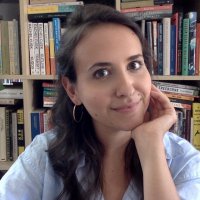
Somehow, nearly half of the novels I have acquired were written by poets. I’ve never been a poetry editor, and, while I read and enjoy poems, I’ve always been drawn back to the novel. So why has it turned out this way? I think it’s because the novelists I most admire possess a poet’s interest in style, in the music of a sentence. In publishing, we’re less likely to talk about this than we are about a book’s themes, character development, or plot. But style is the force behind what makes us feel those other elements most deeply and convincingly.
What I look for in a writer is the ability to create a universe in language, a style that is present on every page. I’m thinking of Javier Marías and his characteristic winding sentences, full of parentheticals and intellectual digressions; Ottessa Moshfegh’s knack for body horror and blunt metaphor; Toni Morrison’s perfect, musical similes; and Muriel Spark’s stark sentences and dark wit. These stylistic choices are all very different from one another, but they are what define and distinguish their authors.
This probably isn’t the most helpful advice—“Just be original, like Toni Morrison or Muriel Spark!”—but I keep coming back to the question of what turns language into literature. When I’m reading submissions, every sentence matters, and a strong manuscript will exhibit the kind of individual stylistic choices that can truly elevate a story.
—Kendall Storey, editor and foreign rights manager, Catapult







